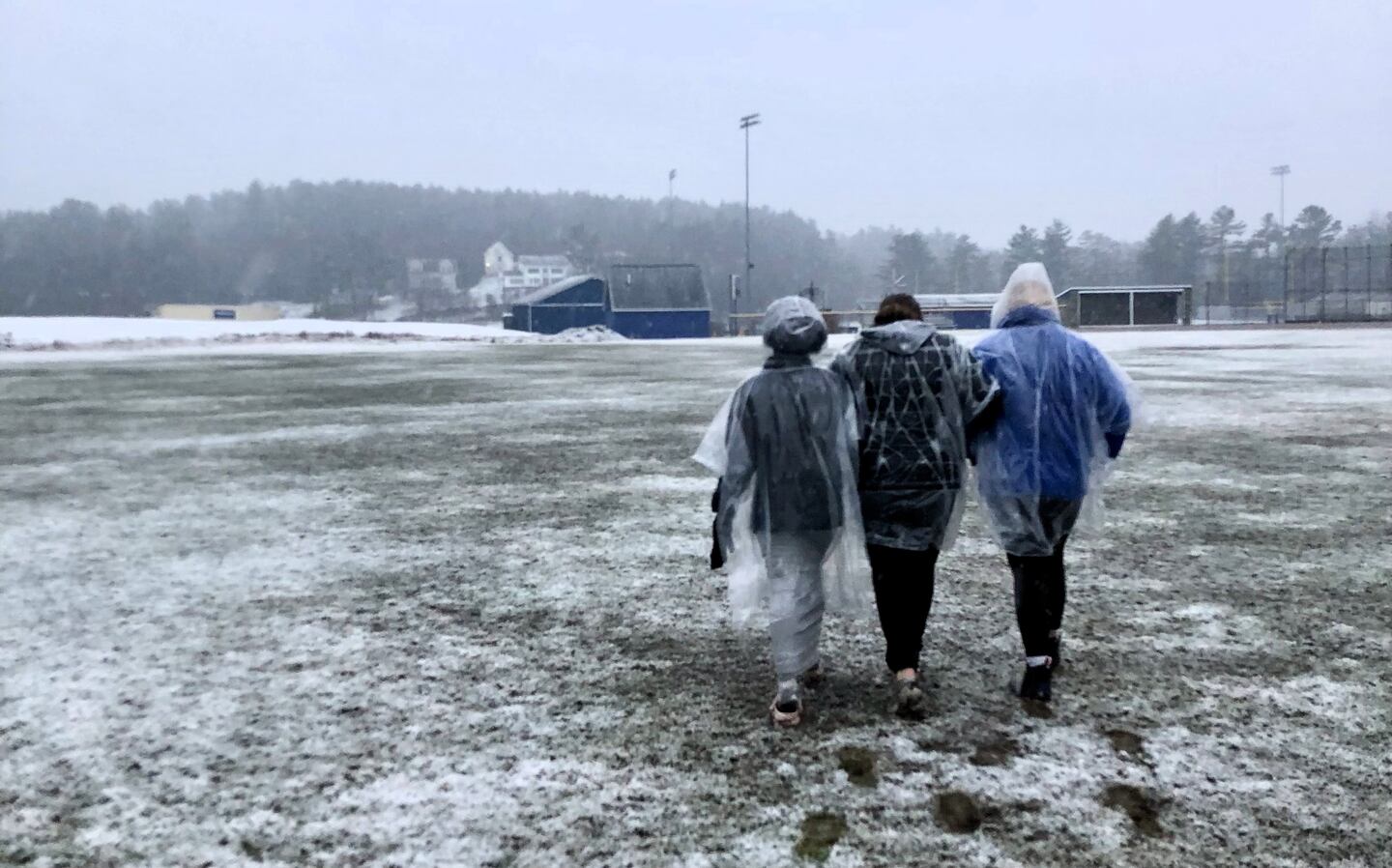
“Why would I even want to hike?” junior Elsie Nelson-Walling recalled thinking. “I could just sit here at school and just wait it out.”
But after their first hikes — smelling pine trees, listening to birds chirping, and discussing their lives — they realized hiking wasn’t so bad. In fact, they found it actually improved their moods.
The detention hikes on trails near Morse High School in Bath, Maine, started in October 2024 and have continued this fall.
“People seem really different in a good way at the end,” Trundy said. “Kids have even expressed it to me. They’ve said, like, ‘That was really awesome, thank you.’ … Even if they’re not as vocal about it, I can tell that they’re in a better place.”
Science supports Trundy’s observations.
Amy McDonnell, a postdoctoral research fellow in cognitive neuroscience at the University of Utah, said spending time outdoors improves mental and physical health, decreases stress, and enhances focus. Plus, making in-person friendships is a predictor of strong physical and mental health.
“It makes a ton of sense to me to spend time in nature rather than indoors,” McDonnell said.
Trundy, 54, knows the benefits of the outdoors. In 1996, unsure what to do with her life, she hiked the Appalachian Trail for six months. Hiking cleared her mind, she said, and helped her decide to be a school counselor.
She started working at Morse High School in 2005 and launched an outdoors club in 2021, leading students on hikes, visits to national parks, and outings to ice-skate and raft.
In September 2024, Trundy attended a workshop at which the speaker discussed the benefits of spending a few hours outdoors. Trundy thought going outside could help clear students’ minds, and the school’s administration agreed to offer the walks to students who preferred not to serve detention in a classroom.
Four students went on the first hike on the Whiskeag Trail behind the school. Word of the hikes spread around school, which has about 600 students pro,mpting a few more students to join in the following weeks.
During hikes, which are about three miles, students hear leaves rustling, shoes stepping on sticks, and insects buzzing.
The group stops by a creek to enjoy snacks Trundy brings — cheese crackers, rice cakes, candy, and water. Then she reads a short poem by Wendell Berry or Mary Oliver that Trundy hopes makes the students think about starting anew.
Students are often more talkative, relaxed, and playful by the end of the hikes, Trundy said. In November, a few boys sang “I Want It That Way” by the Backstreet Boys as they crossed a bridge back onto the school’s campus. Another time, students jumped on a train trestle bridge “like a trampoline,” Trundy said.
Still, a few parents and guardians withdrew their students from the hikes, believing they weren’t a proper punishment for the rules they broke, Trundy said.
When winter arrived last year, and the creek froze and snow covered the tree limbs, Trundy distributed hats, gloves, and ponchos to students. They continued to hike.
They were together when the weather warmed in March, and Trundy and nine hikers took advantage of the free vanilla ice cream Dairy Queen offered on the first day of spring. Trundy guided about 20 hikes last school year, including a final one in late May that was featured on Maine Public.
Soto, who said he has gone on three detention hikes after he was caught using his phone and vape at school, used to feel a “rush” to break the rules. But he said the hikes have helped him relax and given him a different perspective.
Nelson-Walling said she went on about five detention hikes last school year after she got into trouble for skipping class. She struggled to sit still in a classroom, she said.
But she felt better after each detention hike, Nelson-Walling said, and for the first time felt invested in school. She enjoyed the hikes so much that she volunteered to go on more hikes last school year despite not having detention.
“I didn’t really have a hobby before,” Nelson-Walling said. “Hiking is now something that I would say that I like.”
Trundy said fewer students have gotten detention this school year — two or three have hiked each week instead of about six or seven — a sign the program could be working. But a hike last week was still crowded. A few students who hiked for detention last year decided that even if they were no longer getting into trouble, they wanted to hike. Trundy considers that a win.